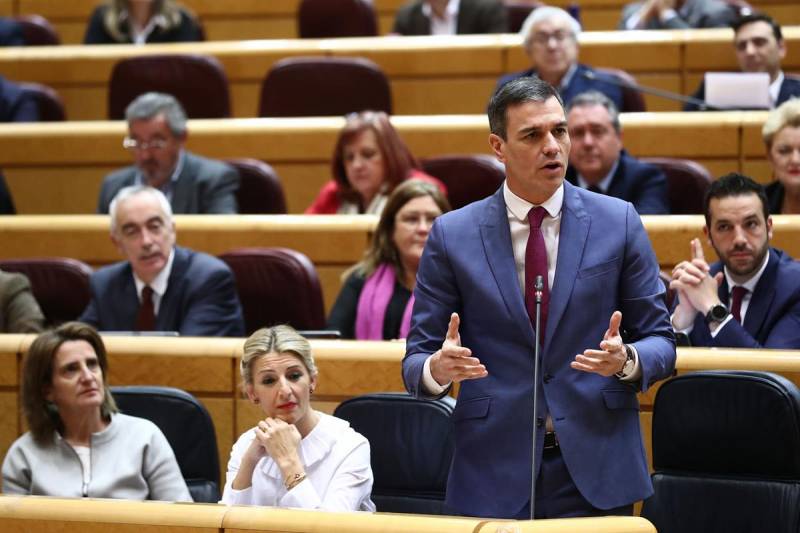article_detail
Date Published: 24/10/2023
Spain could introduce shorter workweek
The country is also one step closer to forming a government after 3 months of deliberations

Spain may soon reduce its working week from 40 hours down to 37.5 in a bold new piece of proposed legislation that includes several other juicy reforms of the Spanish labour law.
The country’s acting President and leader of the PSOE Socialist party, Pedro Sánchez, and the acting Vice President and leader of the Sumar party, Yolanda Díaz, announced the changes in a joint statement, along with the news that they have set aside their differences and agreed to work together to form another coalition government for the next four years.
While Spain’s PP conservative party won the most seats and votes in last July’s general election, they did not have enough to form a majority and failed at their attempt to create a coalition government.
Now it is the turn of the second-place PSOE to try to form a majority coalition government, for which they will need the support of not only left-wing alliance Sumar but also a handful of smaller, ‘independentista’ parties from Catalonia and the Basque Country.
As part of those negotiations, current President Pedro Sánchez is considering granting a controversial amnesty to several Catalonian party members charged with sedition for unilaterally trying to secede from Spain in an illegal referendum in 2016.
One of the conditions of Sumar working with the PSOE to create a new government is a commitment to reduce the working day “without salary reduction” to 38.5 hours in 2024 and down to 37.5 hours in 2025, as well as other measures that “will permeate the entire agreement”.
What working week and labour reforms is Spain considering for 2024?
According to their joint statement, among the employment legislation that PSOE and Sumar wish to implement are measures such as “the immediate implementation of a shock plan against youth unemployment, the reinforcement of the public health system” and the “extension of paid parental leave”, which is currently four months for each parent.
In addition, they want to “increase in the minimum wage so that purchasing power is not lost” and they also foresee changes to housing, with an “increase in the public housing stock with the objective of reaching 20% of the total stock”, an objective that will be very difficult to achieve in one legislature.
Likewise, both parties have committed to reviewing the objectives of the climate change law, approved in the last legislature and which establishes the goal that Spain will consume only clean energy by the year 2050.
They also propose to guarantee access to public education for children as young as two years old by the end of the legislature, where it is currently available for children over the age of 3 in Spain, and to repeal the so-called ‘gag law’ that provides near indiscriminate powers to police during mass public demonstrations.
Finally, the agreement includes “a fair tax reform that makes banks and large energy companies contribute to public spending”, although they have not detailed what taxes will affect these sectors and whether they will be permanent or not.
Image: La Moncloa
Loading
Sign up for the Spanish News Today Editors Roundup Weekly Bulletin and get an email with all the week’s news straight to your inbox
Special offer: Subscribe now for 25% off (36.95 euros for 48 Bulletins)
OR
you can sign up to our FREE weekly roundup!
Read some of our recent bulletins:
Discount Special Offer subscription:
36.95€ for 48 Editor’s Weekly News Roundup bulletins!
Please CLICK THE BUTTON to subscribe.
(List price 3 months 12 Bulletins)
Read more stories from around Spain:
Contact Spanish News Today: Editorial 966 260 896 /
Office 968 018 268



























